- Home
- John le Carré
The Pigeon Tunnel: Stories From My Life Page 27
The Pigeon Tunnel: Stories From My Life Read online
Page 27
‘Mr Cornwell, sir, your father is one of the finest men I ever met. It was a privilege to look after him. I’m retiring soon and when I get back to London he’s going to fix me up in business.’ Even in prison, Ronnie was fattening his jailer for the pot.
I am in Chicago, supporting a lacklustre campaign to sell British goods abroad. The British Consul General, with whom I am staying, hands me a telegram. It is from our Ambassador in Jakarta telling me that Ronnie is in prison and will I buy him out? I promise to pay whatever needs to be paid. To my alarm, it is only a few hundred. Ronnie must be down on his luck.
From the Bezirksgefängnis in Zurich, where he has been imprisoned for hotel fraud, Ronnie telephones me, reversing the charges. ‘Son? It’s your old man.’ What can I do for you, Father? ‘You can get me out of this damned jail, son. It’s all a misunderstanding. These boys just won’t look at the facts.’ How much? No answer. Just an actor’s gulp before a drowning voice delivers the punch line: ‘I can’t do any more prison, son.’ Then the sobs that as usual go through me like slow knives.
I asked my two surviving aunts. They spoke the way Ronnie spoke when he was young: in light, unconscious Dorset accents that I really like. How did Ronnie take it, that first stretch? How did it affect him? Who was he before prison? Who was he after it? But the aunts are not historians, they’re sisters. They love Ronnie, and prefer not to think beyond their love. The scene they remember best was Ronnie shaving on the morning of the day the verdict was to be announced at Winchester Assizes. He had defended himself from the dock the previous day and was certain he would be home free that evening. It was the first time the aunts were allowed to watch him shave. But the only answer I get from them is in their eyes and dropped words: ‘It was terrible. Just terrible.’ They are talking about the shame as if it were yesterday rather than seventy years ago.
Sixty-something years back I had asked my mother, Olive, the same question. Unlike the aunts, who prefer to keep their memories to themselves, Olive was a tap you couldn’t turn off. From the moment of our reunion at Ipswich railway station, she talked about Ronnie non-stop. She talked about his sexuality long before I had sorted out mine, and for ease of reference gave me a tattered hardback copy of Krafft-Ebing’s Psychopathia Sexualis as a map to guide me through her husband’s appetites before and after jail.
‘Changed, dear? In prison? Not a bit of it! You were totally unchanged. You’d lost weight, of course – well, you would. Prison food isn’t meant to be nice.’ And then the image that will never leave me, not least because she seemed unaware of what she was saying: ‘And you did have this silly habit of stopping in front of doors and waiting at attention with your head down till I opened them for you. They were perfectly ordinary doors, not locked or anything, but you obviously weren’t expecting to be able to open them for yourself.’
Why did Olive refer to Ronnie as you? You meaning he, but subconsciously recruiting me to be his surrogate, which by the time of her death was what I had become. There is an audiotape that Olive made for my brother Tony, all about her life with Ronnie. I still can’t bear to play it, so all I’ve ever heard is scraps. On the tape she describes how Ronnie used to beat her up, which, according to Olive, was what prompted her to bolt. Ronnie’s violence was not news to me because he had made a habit of beating up his second wife as well: so often and so purposefully and coming home at such odd hours of the night to do it that, seized by a chivalrous impulse, I appointed myself her ridiculous protector, sleeping on a mattress in front of her bedroom door and clutching a golf iron so that Ronnie would have to reckon with me before he got at her.
Would I really have struck him on his mortgaged head? Might I indeed have killed him, and followed in his footsteps to prison? Or just given him a hug and wished him goodnight? I’ll never know, but I have played the possibilities in my memory so often that all of them are true.
Certainly Ronnie beat me up, too, but only a few times and not with much conviction. It was the shaping up that was the scary part: the lowering and readying of the shoulders, the resetting of the jaw. And when I was grown up Ronnie tried to sue me, which I suppose is violence in disguise. He had watched a television documentary of my life and decided there was an implicit slander in my failure to mention that I owed everything to him.
How did Olive and Ronnie first get together? I asked her this question in my Krafft-Ebing period, not long after that first remembered hug at Ipswich station. ‘Through your Uncle Alec, dear,’ she replied. She was referring to her estranged brother, her senior by twenty-five years. Their parents were both long dead, so Uncle Alec, a grandee of Poole, Member of Parliament and fabled local preacher, was her effective father. Like Olive, he was thin and bony and very tall, but also vain, a natty dresser with a great sense of his social importance. Appointed to present a cup to a local football team, Uncle Alec took Olive along with him, in the manner of one schooling a future princess in the exercise of her public duties.
Ronnie was the team’s centre forward. Where else could he possibly play? As Uncle Alec moved along the line, shaking hands with each player, Olive trailed behind him, pinning a badge to each proud breast. But when she pinned one to Ronnie’s he fell dramatically to his knees, complaining she had pierced him to the heart, which he was clutching with both hands. Uncle Alec, who on all known evidence was a pompous arse, loftily condoned the horseplay, and Ronnie with impressive meekness enquired whether he might call at the great house on Sunday afternoons to pay his respects – not to Olive, naturally, who was socially far above him – but to an Irish housemaid with whom he had struck up an acquaintance. Uncle Alec graciously gave his consent and Ronnie, under cover of wooing the maid, seduced Olive.
‘I was so lonely, darling. And you were such a ball of fire.’ The fire, of course, was Ronnie, not me.
Uncle Alec was my first secret source and I blew him sky high. It was to Alec that I had secretly written on my twenty-first birthday – Alec Glassey, MP, care of the House of Commons, Private – to enquire whether his sister, my mother, was alive and, if so, where she might be found. Glassey had long ceased to be an MP, but miraculously the Commons authorities forwarded my letter. I had asked Ronnie the same question when I was younger, but he had only frowned and shaken his head, so after a few more shots I gave up. In a two-line scrawl Uncle Alec advised me that I would find her address on the attached piece of paper. A condition of this information was that I should never tell ‘the person concerned’ where I had it from. Stimulated by the injunction, I blurted out the truth to Olive within moments of our meeting.
‘Then we must be grateful to him, dear,’ she said, and that was all.
Or it should have been all, except that forty years later in New Mexico, and several years after my mother’s death, my brother Tony informed me that on his twenty-first birthday, two years before mine, he, too, had written to Alec, had taken the train to Olive, hugged her on the No. 1 platform and probably, thanks to his height, achieved a better grasp than I had. And he had debriefed her.
So why had Tony not told me all this? Why hadn’t I told him? Why had Olive told neither of us about the other? Why had Alec tried to keep us all apart? The answer is fear of Ronnie, which for all of us was like fear of life itself. His reach, psychological and physical, and his terrible charm were inescapable. He was a walking Rolodex of connections. When one of his women was discovered to be consoling herself with a lover, Ronnie went to work like a one-man war room. Within an hour he had a line to the wretched man’s employer, his bank manager, his landlord and his wife’s father. Each was recruited as an agent of destruction.
And what Ronnie had done to a helpless erring husband he could do to all of us tenfold. Ronnie wrecked as he created. Every time I am moved to admire him, I remember his victims. His own mother, freshly bereaved, the sobbing executrix of his father’s estate; his second wife’s mother, also widowed, also in dazed possession of her late husband’s fortune: Ronnie robb
ed them both, depriving them of their husbands’ savings and the proper heirs of their inheritance. Dozens, scores of others, all trusting, all by Ronnie’s noble standards deserving of his protection: conned, robbed, ripped off by their knight errant. How did he explain this to himself, if at all? The racehorses, parties, women and Bentleys that furnished his other life while he was gulling money out of people so helpless with love for him that they couldn’t say no? Did Ronnie ever count the cost of being God’s chosen boy?
I keep few letters, and most of Ronnie’s to me were so awful I destroyed them almost before I read them: begging letters from America, India, Singapore and Indonesia; hortatory letters forgiving me my trespasses and urging me to love him, pray for him, make the best use of the advantages he had lavished on me, and send him money; bullying demands that I repay the cost of my education; and doom-laden prognostications of his imminent death. I don’t regret having thrown them away; sometimes I wish I could throw away the memory of them, too. Occasionally, despite my best efforts, a shred of his inextinguishable past turns up to tease me: a page of one of his typed letters on flimsy airmail paper, for instance, advising me of some crazy scheme he wants me to ‘bring to the Attention of your Advisors with a View to Early Investment’. Or an old business adversary of Ronnie writes to me, always tenderly, always grateful to have known him, even if the experience proved costly.
Some years back, dickering on the brink of an autobiography and frustrated by the poverty of collateral information, I hired a pair of detectives, one thin, one fat, both recommended by a rugged London solicitor, and both good eaters. Go out into the world, I said to them airily. Be my guests. Find the living witnesses and the written record and bring me a factual account of myself and my family and my father and I will reward you. I’m a liar, I explained. Born to lying, bred to it, trained to it by an industry that lies for a living, practised in it as a novelist. As a maker of fictions, I invent versions of myself, never the real thing, if it exists.
So what I’ll do is this, I said. I’ll let my imaginative memory rip on the left-hand page, and I’ll put your factual record on the right-hand page, unchanged and unadorned. And in that way my readers will see for themselves to what extent an old writer’s memory is the whore of his imagination. We all reinvent our pasts, I said, but writers are in a class of their own. Even when they know the truth, it’s never enough for them. I directed them to Ronnie’s dates and names and places and suggested they dig out the court records. I imagined them hunting down vital sources while there were still a few around, former secretaries, prison officers and policemen. I told them to do the same with my school record, my army record, and, since I had several times been the subject of official security checks, the assessments of my trustworthiness by the services we used to regard as secret. I urged them to stop at nothing in their search for me. I told them about my father’s scams, domestic and foreign, everything I could remember: how he attempted to con the prime ministers of Singapore and Malaysia into a dubious football-pools operation and came within a whisker of bringing it off. But it was the same whisker that always let him down.
I told them about his little ‘extra families’ and mistress-mothers, keepers of the flame, who, in his own words to me, were always there to cook him a sausage if he dropped by. I gave them the names of a couple of the women I knew about, and an address or two, and the names of the children – whose is anybody’s guess. I told them about Ronnie’s war service, which consisted of using every trick in the book not to do any, including standing in parliamentary by-elections under such rousing banners as ‘Independent Progressive’, which obliged the army to release him to exercise his democratic rights. And how, even while he was being trained, he kept a couple of courtiers and a secretary or two on hand, billeted in local hotels, so that he could pursue his legitimate business of war profiteer and trader in shortages. In the immediate post-war years, it is my conviction, Ronnie improved upon his army record by awarding himself the alias of Colonel Cornhill, by which name he was well known in the shadier corners of the West End. When my half-sister Charlotte was playing in a film about the notorious gangland family in east London called The Krays, she consulted the eldest brother, Charlie, in order to collect material for the part. Over a nice cup of tea, Charlie Kray dug out the family photo album, and there was Ronnie with an arm round the two younger brothers.
I told them about the night I checked into the Royal Hotel in Copenhagen and was at once invited to visit the manager. I assumed my fame had gone ahead of me. It hadn’t, but Ronnie’s had. He was wanted by the Danish police. And there they were, two of them, upright like schoolboys in correction chairs against one wall. Ronnie, they said, had entered Copenhagen illegally from the United States with the assistance of a couple of Scandinavian pilots whom he had fleeced at poker in a New York dive. Instead of cash, he had suggested they give him a free ride to Denmark, which they duly did, spiriting him through customs and immigration when they landed. Did I by any chance, the Danish policemen enquired, happen to know where they could find my father? I didn’t. And, thank God, I really didn’t. I’d last heard of Ronnie a year earlier, when he had tiptoed out of Britain in order to escape a creditor, or arrest, or the mob, or all three.
So there was another lead for my detectives, I told them: let’s find out what Ronnie was running away from in Britain, and why he had to get out of America the hard way, too. I told them about Ronnie’s racehorses, which he kept going even when he was an undischarged bankrupt: horses in Newmarket, in Ireland and at Maisons-Laffitte, outside Paris. I gave them the names of trainers and jockeys and told them how Lester Piggott had ridden for him while Lester was still an apprentice; and how Gordon Richards had advised him on his buying. And how I had once come upon young Lester in the back of a horse trailer, lounging in the straw in Ronnie’s silks, reading a boys’ comic before the race. Ronnie’s racehorses were named after his beloved children: Dato, God help us, for David and Tony; Tummy Tunmers, which combined the name of his house with his affection for his own stomach; Prince Rupert – the only horse that showed any form – after my half-brother, Rupert; and Rose Sang, in arch reference to my half-sister Charlotte’s red hair. And how in my late teens I used to go to race meetings in Ronnie’s stead after he had been warned off the course for not paying his gambling debts. And how when Prince Rupert to everyone’s amazement took a place in – was it the Cesarewitch? – I returned to London on the same train as the bookies Ronnie hadn’t paid, lugging a briefcase stuffed with banknotes from bets I’d placed for him around the course.
I told my detectives about Ronnie’s Court, as I had always secretly called it: the motley of genteel ex-prisoners who formed the nucleus of his corporate family – ex-schoolmasters, ex-lawyers, ex-everything. And how one of them, called Reg, took me aside after Ronnie’s death and tearfully gave me what he called the bottom line. Reg had done prison for Ronnie, he said. And he wasn’t alone in that distinction. So had George-Percival, another courtier. So had Eric and Arthur. All four had taken the rap for Ronnie at one time or another, rather than see the Court robbed of its guiding genius. But that wasn’t Reg’s point. His point, David – through his tears – was that they were a bunch of bloody idiots who had let Ronnie con them every time. And they still were. And if Ronnie rose from his grave today and asked Reg to do another stretch for him, Reg would do it, the same as George-Percival and Eric and Arthur would. Because where Ronnie was concerned – and Reg was happy to admit this – the whole lot of them were soft in the head.
‘We was all bent, son,’ Reg added in a last respectful epitaph to a friend. ‘But your dad was very, very bent indeed.’
I told the detectives how Ronnie had stood as a Liberal parliamentary candidate for Yarmouth in the general election of 1950, taking the Court with him, Liberals to a man. And how the Conservative candidate’s agent met Ronnie by appointment in a private place and, fearful that Ronnie was going to split the vote in Labour’s favour, warned h
im that the Tories would leak his prison record and one or two other tidbits about him if he didn’t stand down, which Ronnie, after consulting a plenary session of the Court, of which I was an ex-officio member, refused to do. Was Uncle Alec the Tories’ Deep Throat? Had he sent them one of his secret letters exhorting them not to reveal the source? I have always suspected so. In any event, the Tories did exactly as they had threatened. They leaked Ronnie’s prison record, and Ronnie as predicted split the vote and Labour won.
Perhaps by way of friendly warning to my detectives, or as a bit of a boast, I impressed upon them the extent of Ronnie’s network of connections, and the lines he had to the most unlikely people. In the late forties and early fifties, his golden years, Ronnie could throw parties at his house in Chalfont St Peter which included directors of Arsenal football club, Permanent Under-Secretaries, champion jockeys, film stars, radio stars, snooker kings, ex-lord mayors of London, the entire cast of the Crazy Gang then playing at the Victoria Palace, not to mention a handpicked selection of lovelies from wherever he got them, and the Australian or West Indian Test cricket teams if they were visiting. Don Bradman came, and so did most of the great and good players of the post-war years. To which should be added a choir of leading judges and barristers of the day and a troop of ranking Scotland Yard police officers in off-duty blazers with crests on the pocket.
Ronnie with his early education in police methods could spot a flexible copper a mile off. He knew at a glance what they ate and drank and what made them happy, how far they would bend and where they would snap. It was one of his pleasures to extend police protection to his friends, so that if someone’s son, dead drunk, rolled his parents’ Riley into a ditch, it was Ronnie who received the first frantic phone call from the child’s mother, Ronnie again who waved his wand and caused the blood tests to be muddled in the police laboratory, to the profuse apologies of the prosecution for wasting Your Worship’s valuable time: with the further happy outcome that Ronnie notched up yet another favour to his account in the great Promise Bank where he kept his only assets.

 The Honorable Schoolboy
The Honorable Schoolboy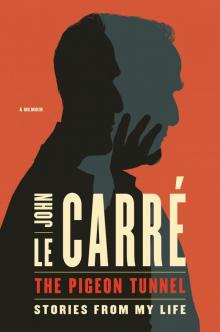 The Pigeon Tunnel: Stories From My Life
The Pigeon Tunnel: Stories From My Life Single & Single
Single & Single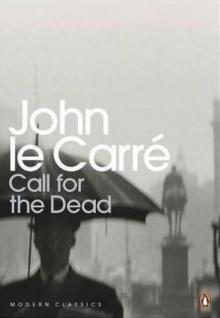 The Spy Who Came in From the Cold
The Spy Who Came in From the Cold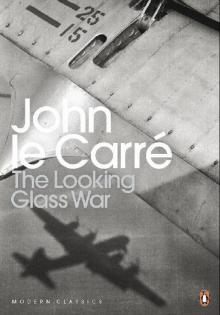 The Looking Glass War
The Looking Glass War The Night Manager
The Night Manager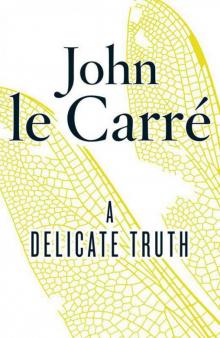 A Delicate Truth
A Delicate Truth A Perfect Spy
A Perfect Spy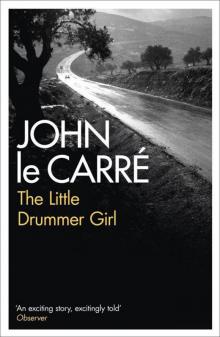 The Little Drummer Girl
The Little Drummer Girl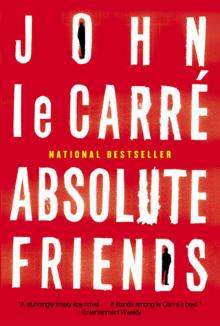 Absolute Friends
Absolute Friends A Murder of Quality AND Call for the Dead
A Murder of Quality AND Call for the Dead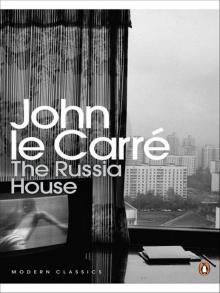 The Russia House
The Russia House The Tailor of Panama
The Tailor of Panama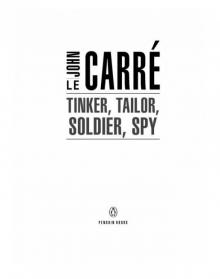 Tinker, Tailor, Soldier, Spy
Tinker, Tailor, Soldier, Spy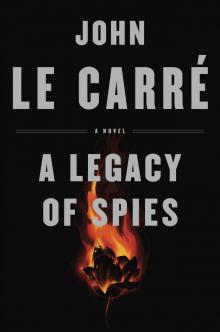 A Legacy of Spies
A Legacy of Spies The Mission Song
The Mission Song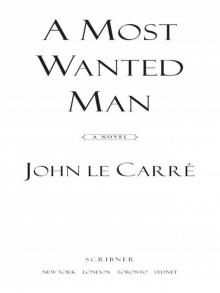 A Most Wanted Man
A Most Wanted Man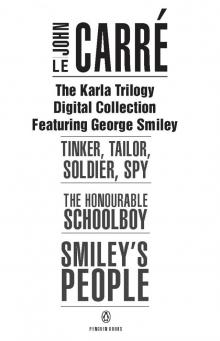 John Le Carré: Three Complete Novels
John Le Carré: Three Complete Novels The Secret Pilgrim
The Secret Pilgrim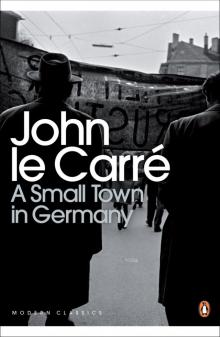 A Small Town in Germany
A Small Town in Germany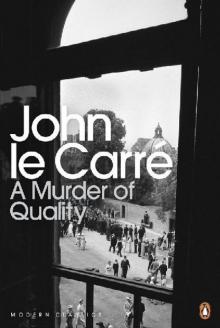 A Murder of Quality
A Murder of Quality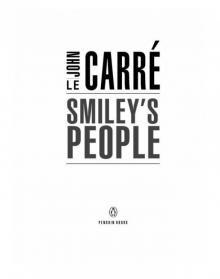 Smiley's People
Smiley's People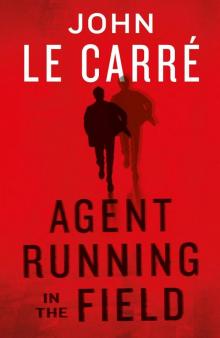 Agent Running in the Field
Agent Running in the Field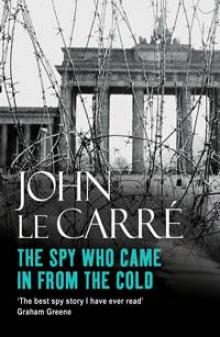 The Spy Who Came in from the Cold s-3
The Spy Who Came in from the Cold s-3 The Pigeon Tunnel
The Pigeon Tunnel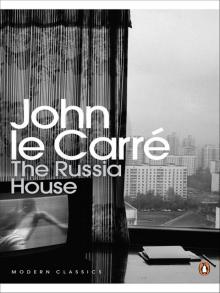 The Russia House - 13
The Russia House - 13 The Honourable Schoolboy
The Honourable Schoolboy Call For The Dead s-1
Call For The Dead s-1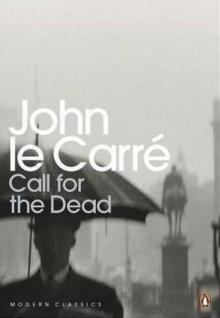 Call for the Dead
Call for the Dead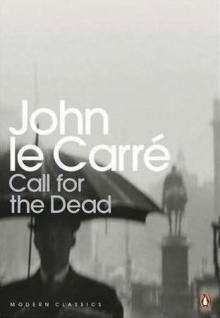 Call for the Dead - 1
Call for the Dead - 1